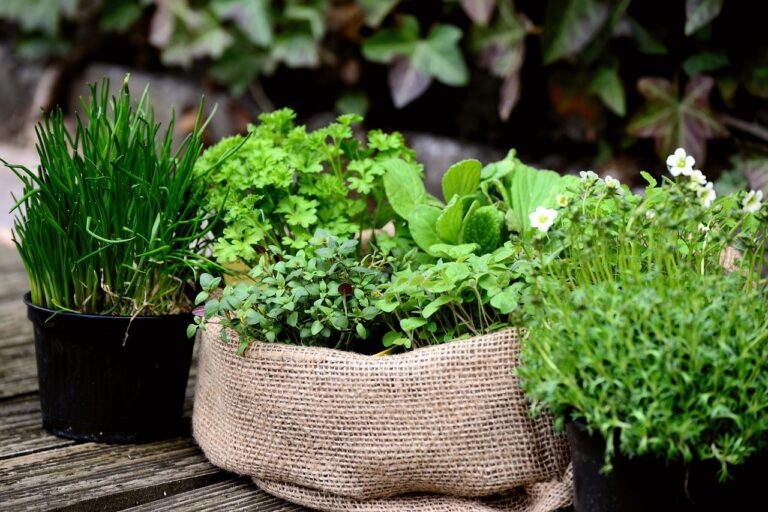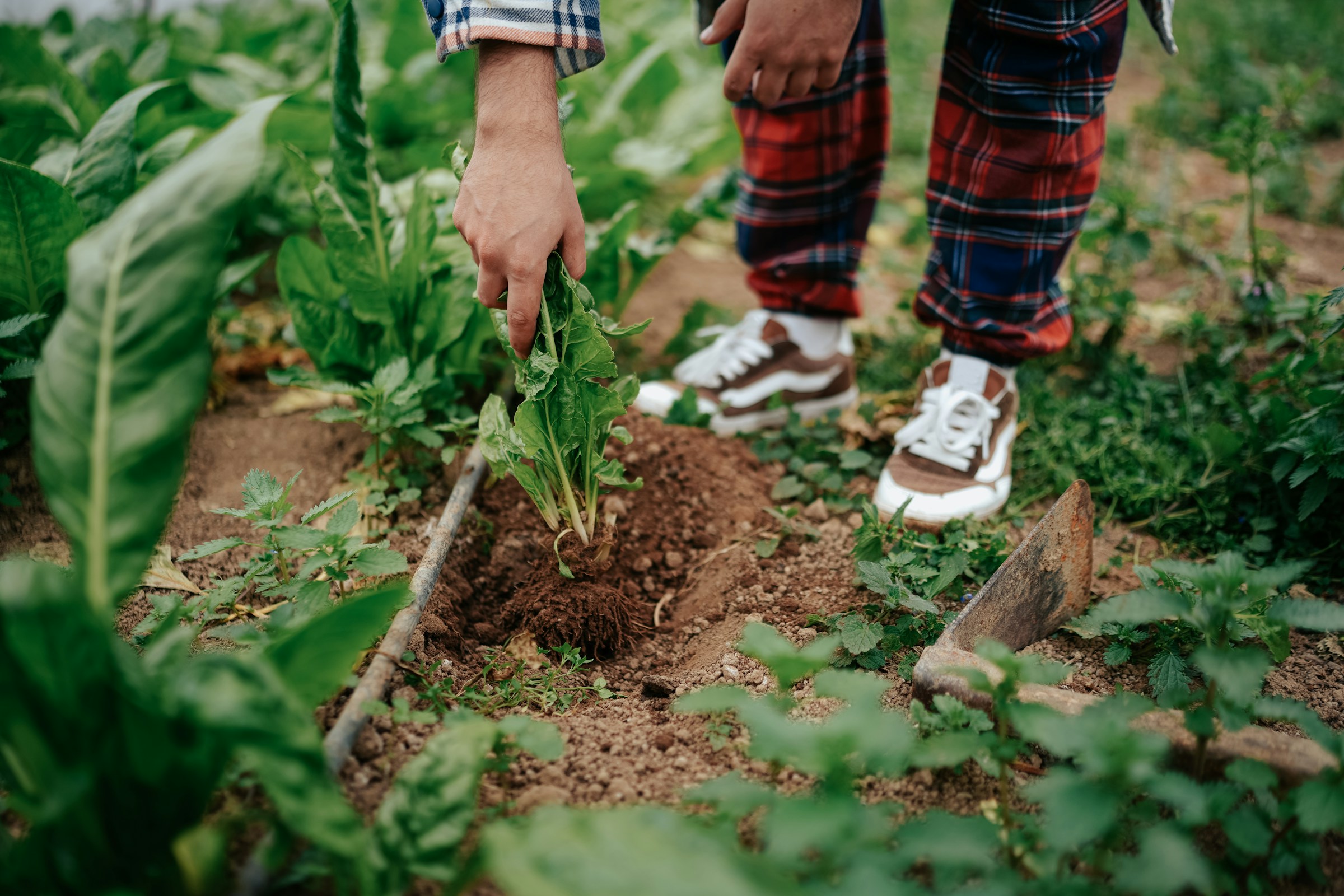Starting a herb garden can be a rewarding endeavor. It offers a wealth of benefits, from enhancing your culinary creations to improving your home’s aesthetics.
However, successful herb gardening requires more than just planting seeds. It demands a deep understanding of plant care, from soil preparation to pest control.
In this comprehensive guide, we delve into the intricacies of starting and maintaining a herb garden. We combine practical gardening tips with advanced techniques to help you cultivate a thriving garden.
Whether you’re an intermediate gardener or a seasoned horticulturist, this guide offers valuable insights. It will help you navigate the challenges of herb gardening and reap its rewards.
Join us as we explore the world of herb gardening. Let’s turn your green thumb into a masterful touch.
Understanding the Essentials of Herb Gardening
Herb gardening is a science and an art. It requires a keen understanding of the specific needs of different herbs. From sunlight requirements to soil composition, each herb has its unique preferences.
Climate and environment play a crucial role in your herb garden’s success. Some herbs thrive in warm, sunny climates, while others prefer cooler, shaded areas. Understanding these nuances is key to a thriving garden.
Soil preparation is another critical aspect. The right soil composition can significantly impact your herbs’ growth and health. We’ll delve into this topic in the following sections.
Herb selection is also vital. Whether you’re growing herbs for culinary, medicinal, or aromatic purposes, choosing the right ones can make all the difference.
Finally, patience and observation are essential. Herb gardening is a journey, not a destination. It’s about learning, experimenting, and enjoying the process.
Selecting the Right Location
The location of your herb garden can significantly impact its success. Sunlight, temperature, and accessibility are all factors to consider.
Most herbs require full sun, which means at least six hours of direct sunlight each day. However, some herbs, like parsley and mint, can tolerate partial shade.
Consider the convenience of access too. A herb garden near your kitchen allows for easy harvesting when cooking.
Soil Preparation and Composition
Soil preparation is crucial for a thriving herb garden. The right soil provides the nutrients your herbs need to grow.
Most herbs prefer well-draining soil with a neutral to slightly alkaline pH. Adding organic matter, like compost or well-rotted manure, can improve soil structure and fertility.
Regular soil testing can help you maintain the optimal soil conditions for your herbs.
Choosing Your Herbs: Culinary, Medicinal, and Aromatic
Choosing the right herbs depends on your purpose. Are you growing herbs for cooking, health benefits, or their pleasant aroma?
For culinary purposes, consider herbs like basil, rosemary, and thyme. For medicinal uses, herbs like echinacea, chamomile, and peppermint are popular choices. For aromatic appeal, consider lavender, lemon balm, and mint.
Remember, each herb has its unique care requirements. Researching these can help ensure your herb garden’s success.
Advanced Plant Care Techniques
Advanced plant care techniques can significantly enhance your herb garden’s health and productivity. These techniques go beyond the basics, delving into the intricacies of plant care.
Understanding the specific needs of your herbs is crucial. Each herb has its unique care requirements, from watering and sunlight to fertilization and pruning.
Implementing these techniques requires patience and observation. It’s about understanding your plants and responding to their needs.
Remember, a well-cared-for herb garden is a productive and rewarding one. Let’s delve into these advanced techniques.
Sunlight and Watering: A Delicate Balance
Sunlight and watering form a delicate balance in herb gardening. Too much or too little of either can harm your plants.

Most herbs require full sun, but some can tolerate partial shade. Understanding your herbs’ sunlight requirements can help ensure their health and productivity.
Watering needs vary among herbs. Some prefer dry conditions, while others require regular watering. Overwatering can lead to root rot, a common issue in herb gardening.
Fertilization: Organic vs. Inorganic
Fertilization is a crucial aspect of herb gardening. It provides your plants with the nutrients they need to grow.
Organic fertilizers, like compost or manure, are a popular choice. They release nutrients slowly, improving soil structure and fertility over time.
Inorganic fertilizers, on the other hand, provide immediate nutrients. However, they can harm the soil and environment if used excessively.
Pruning and Harvesting for Growth
Pruning and harvesting are essential for promoting growth in your herb garden. They encourage bushier growth and prevent your herbs from becoming leggy.
Regular pruning stimulates new growth, keeping your herbs healthy and productive. It’s best to prune in the morning, when the plants’ oils are at their peak.
Harvesting also promotes growth. When harvesting, cut just above a set of growing leaves. This encourages the plant to produce more foliage.
DIY Garden Projects for Your Herb Garden
DIY projects can add a personal touch to your herb garden. They allow you to tailor your garden to your specific needs and preferences.
From building raised beds to creating a DIY irrigation system, these projects can enhance your gardening experience. They can also improve the health and productivity of your herb garden.
Let’s explore some DIY garden projects that you can undertake for your herb garden.
Building Raised Beds and Containers
Raised beds and containers offer numerous benefits for herb gardening. They improve drainage, prevent soil compaction, and allow you to control the soil quality.
Building your own raised beds and containers allows you to customize their size and design. You can use various materials, such as wood, stone, or recycled items.
Remember to consider the depth of the bed or container. Most herbs require a depth of 6 to 12 inches to grow well.
Creating a DIY Irrigation System
A DIY irrigation system can ensure your herbs receive the right amount of water. It can save you time and help conserve water.
Drip irrigation is a popular choice for herb gardens. It delivers water directly to the plant roots, reducing water waste.
You can create a simple DIY irrigation system using a soaker hose or drip line. Remember to adjust the watering schedule based on your herbs’ needs.
Overcoming Challenges in Herb Gardening
Herb gardening can present certain challenges. These include pests, diseases, and seasonal changes.
However, with the right knowledge and strategies, you can overcome these challenges. Let’s delve into some common issues and how to address them.
Pest Control and Disease Prevention
Pests and diseases can harm your herbs. They can reduce their growth and affect their quality.
Regular monitoring is key to early detection and control. Use organic pest control methods, such as beneficial insects or homemade sprays.
For disease prevention, ensure good air circulation and avoid overwatering. Also, clean your gardening tools regularly to prevent disease spread.
Seasonal Adjustments and Protection
Seasonal changes can affect your herb garden. Cold winters can damage or kill your herbs, while hot summers can cause them to bolt.
To protect your herbs, adjust their care according to the season. In winter, consider using mulch or cold frames for protection.
In summer, provide shade during the hottest part of the day. Also, increase watering to prevent drying out. Remember, each herb has its own seasonal needs, so adjust your care accordingly.
Conclusion: The Rewards of a Well-Maintained Herb Garden
A well-maintained herb garden is a source of joy and satisfaction. It provides fresh herbs for your culinary needs, enhances your outdoor space, and contributes to a sustainable lifestyle.
Moreover, the process of tending to your herb garden can be therapeutic. It allows you to connect with nature, exercise patience, and enjoy the fruits of your labor.
In conclusion, starting a herb garden may require effort and dedication, but the rewards are well worth it. With the right knowledge and techniques, you can cultivate a thriving herb garden that brings you endless pleasure.




















